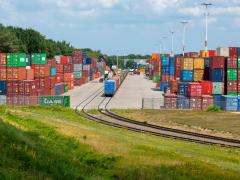Green Gains: In search of opportunities for the Dutch economy
If the Netherlands is to remain a strong player in the global economy, it needs to intensify its efforts in greening its economy. The Netherlands lags behind competing neighbouring countries, who began their transition towards a green economy earlier, focus more on doing so, have ambitious long-term targets in place, and invest heavily in research. The business community by itself cannot bring about a green Dutch economy; the government also has an important role to play. What is needed is a stronger, greener innovation policy.
This trends report focuses on the interface between greening and competitiveness and, in particular, on the opportunities provided by greening to ensure continued earnings for the future. The report calls for a broad public discourse on our future economy; one that is based on greening and competitiveness.
The Netherlands lags behind
The Dutch economy, and its exports in particular, rely heavily on sectors with high levels of energy and material consumption, making the Netherlands vulnerable to increasing raw-material prices and supply shortages.
The Netherlands is relatively strong in areas such as reusing waste and green taxes. In the area of green innovation, however, the Netherlands lags behind countries such as Germany, Denmark and the United Kingdom.
Only a few sectors combine a strong comparative advantage with green innovation. Countries such as Germany and Denmark perform better. This is shown by an analysis of patents, comparative advantages and production sizes of sectors in various countries.
Opportunities for the Netherlands
Worldwide, there is a rapid growth in markets for clean and efficient products. Opportunities may lead to benefits if the Netherlands makes clever use of its innovative power, current economic structure and comparative advantages.
There are at least three promising themes for the transition towards a greener economy: the bio-based economy, the sustainable built environment and the circular economy. In each of these areas, the Netherlands has a strong knowledge base. In the area of the sustainable built environment, this is true for lighting technology and energy saving.
Dutch architects and designers enjoy international recognition for their innovation and imagination. In the bio-based economy, the Netherlands also enjoys a strong comparative advantage.
A role for government
A green economy cannot be achieved by the business community alone; the government also has a clear role to play. Investing now in innovation and a green growth strategy, will provide excellent dividends later on.
Authors
Specifications
- Publication title
- Green Gains
- Publication date
- 7 May 2014
- Publication type
- Publication
- Publication language
- English
- Product number
- 1262




